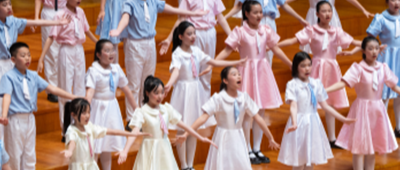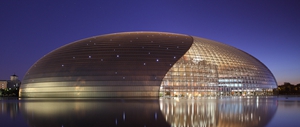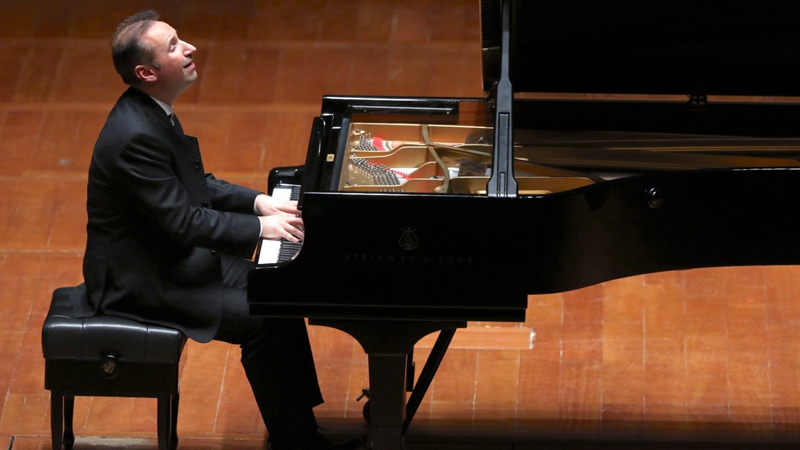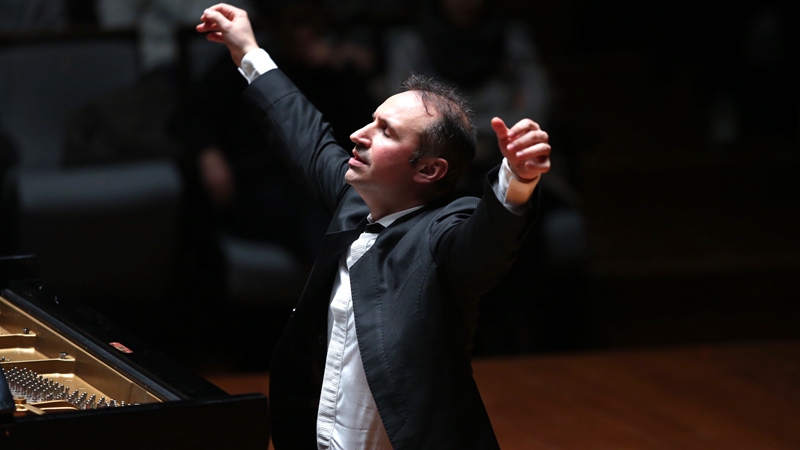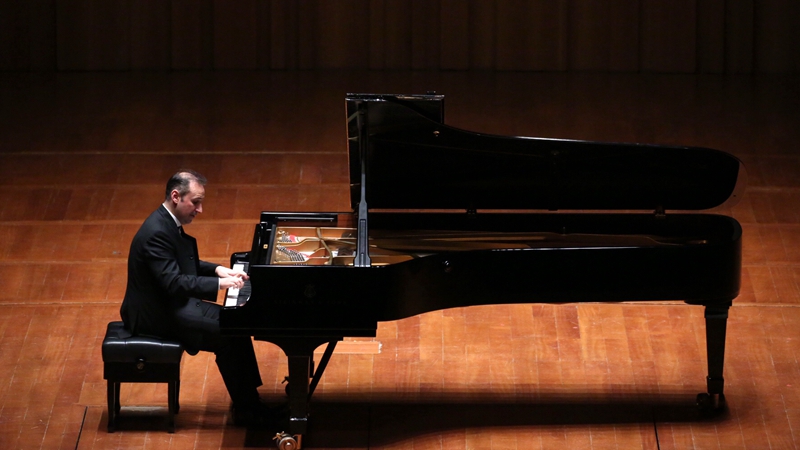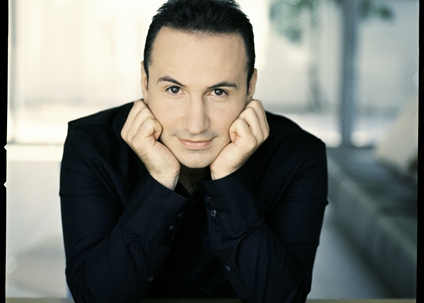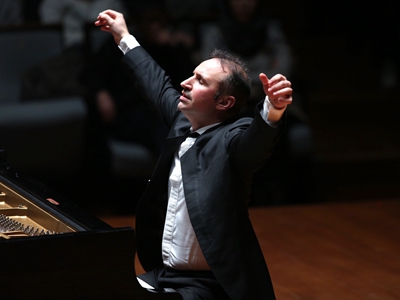With two suitcases and a coat, pianist Simon Trpčeski has embarked on an international tour and arrived at Beijing on February 3rd, one day before the Beginning of Spring of 2018. He is talkative, easy-going and sociable, but did not really stand out in the crowd, for he did not like putting on airs or boasting of his “identity as an artist.” Yet, Simon enjoys playing the piano so much that he didn’t forget to recommend his upcoming concert at the NCPA (National Centre for the Perforing Arts), scheduled on February 4th when he spoke to the front desk staff as he was checking in at the hotel. This concert, as it turns out, has already been sold out days before the opening night.
Later, I couldn’t help asking, “It’s not easy for you to reach your achievements, isn’t it?” Pondering for a moment, he said, “In the years when I learned the piano, the main way to stand out from the rest was to practice hard to get admitted to a famous college, where one might compete in contests to win a name. Note that you must compete in many contests to stand out. I kept entering my name for contests until 2000, when I met my broker, and everything began to change. I got more and more chances to perform and express.”
Simon Trpčeski at the concert
On the horns of a dilemma
To fully express music in the concert, two pianos were selected. Piano No. 832, with its warm and deep tone colour, won the heart of Simon Trpčeski to perform Grieg and Mendelssohn when he played the first note of Ayre. Just like his sensitive and affectionate personality, Simon Trpčeski’s music is delicate and romantic that holds an irresistible attraction to the audience. His performance makes an impressive picture.
“Simon, you know, sometimes I feel it is hard to figure out whether you are making a picture of what you’ve seen or what Grieg saw, but it is impressively beautiful.” I said when helping him confirm the sound effect in the Concert Hall.
He stopped to look at me, eyes shining, and said slowly, “This piece belongs here!”
Simon Trpčeski's performance amazed the audience
Nonetheless, things did not go so smoothly when Simon Trpčesk was deciding which piano to use to perform the Sheherazade. He tried both pianos alternately. After all, the piece is a piano solo adapted from a symphonic work, which needs to be played as part of the whole orchestral music rather than pure piano music in the first half. It happened that the piano No. 825 had brighter tone colour, which could produce a shocking effect. Finally, we decided to use two pianos respectively in the first and second halves.
“Unconventional” pieces
As the first part of the NCPA Piano Virtuosos 2018, Simon’s concert has received a boost from three “unconventional” pieces including a “piano suite”, a “piano piece” and “piano arrangement”. After all, only a pianist of courage dares to play piano pieces. According to pianists, “The difficulty of performing a piano piece does not lie in skill, but in quality and aesthetic sense. That’s why it is challenging to perform piano pieces.”
In the world of piano, there's a lot to experience and explore
Whereupon, Mendelssohn’s Songs Without Words were performed in both major and minor at varying speed, quickly shortening the distance between the audience and the concert. And for the children who had just started to learn the piano, it was interesting to listen to Uncle Simon, who looked very cute, perform their “homework” so charmingly. Indeed, for the same piece, apart from wrong notes, fingering and intensity underlined on their textbooks, there is a broader world for children to experience and explore.
Besides, Grieg’s Holberg suite—composed for the piano, but the orchestral version of its famous melodies is more well known—performed at the beginning of the concert echoed with the piano arrangement Sheherazade performed in the second half, composed for the symphony orchestra by Rimsky-Korsakov and adapted by Paul Gilson. Whether it was Grieg’s tribute to Holberg or a wonderful story in The Thousand and One Nights (Sheherazade), it was associated with the others in sound while performed by Simon, revealing the spiritual connotations of Songs Without Words: “If the language works everywhere, I will have no chance to write music.” (Mendelssohn)
“In my repertoire are works by Grieg, Mendelssohn and Rimsky-Korsakov, so I choose each of their works as an encore”, said Simon. Sheherazade is not only an orchestral masterpiece, but composer Rimsky-Korsakov’s best-known piano arrangement in addition to Flight of the Bumble Bee.
So, since such works were expected, even if they were not included in the repertoire, Simon would not let us down, and this might be due to a tacit understanding among music lovers.
At the concert, which was performed just before the Chinese Spring Festival, Simon surprised audiences with Mandarin Chinese he had learned for the stage, “I love Beijing”, “Spring is coming”, “Happy New Year”.
* This article was written by ZHANG Siyao, who’s in charge of the NCPA Piano Virtuosos 2018.
Photos by NIU Xiaobei
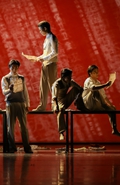 Repertoire
Repertoire
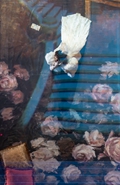 Films
Films
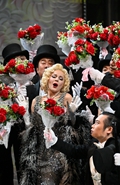 Videos
Videos
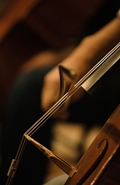 Podcast
Podcast
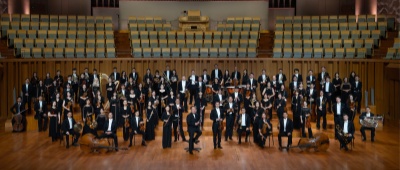 China NCPA Orchestra
China NCPA Orchestra
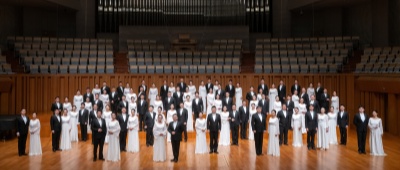 China NCPA Chorus
China NCPA Chorus
 NCPA Resident Singers
NCPA Resident Singers
 NCPA Drama Ensemble
NCPA Drama Ensemble
 Buildings
Exhibitions
Buildings
Exhibitions
 Opening Hours
Services
Opening Hours
Services
 Western Cuisine
NCPA Café
Arts Gifts
Western Cuisine
NCPA Café
Arts Gifts








